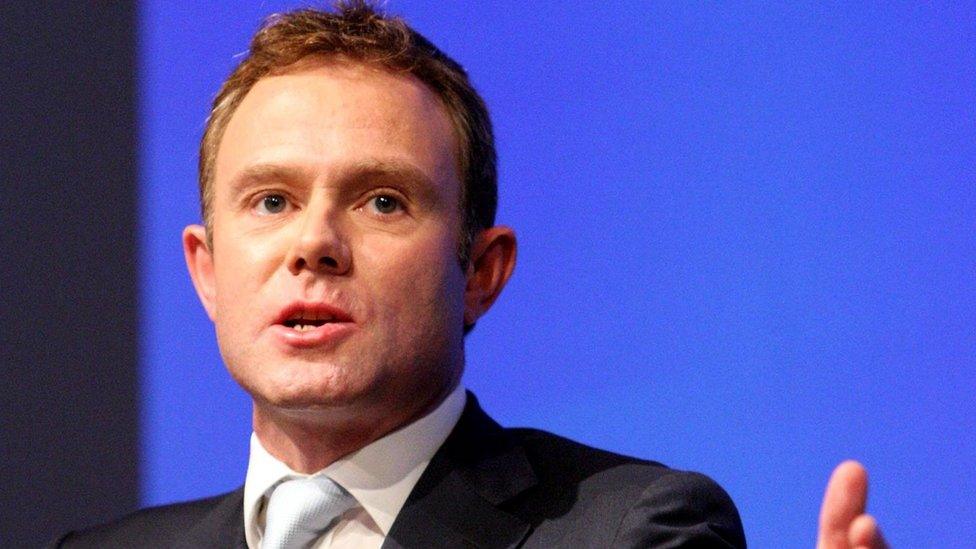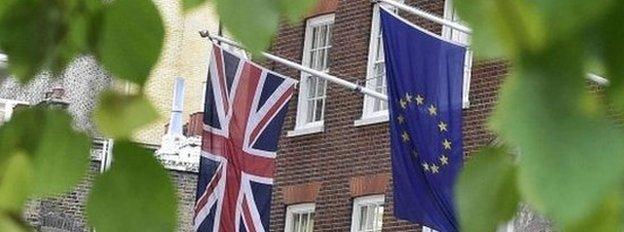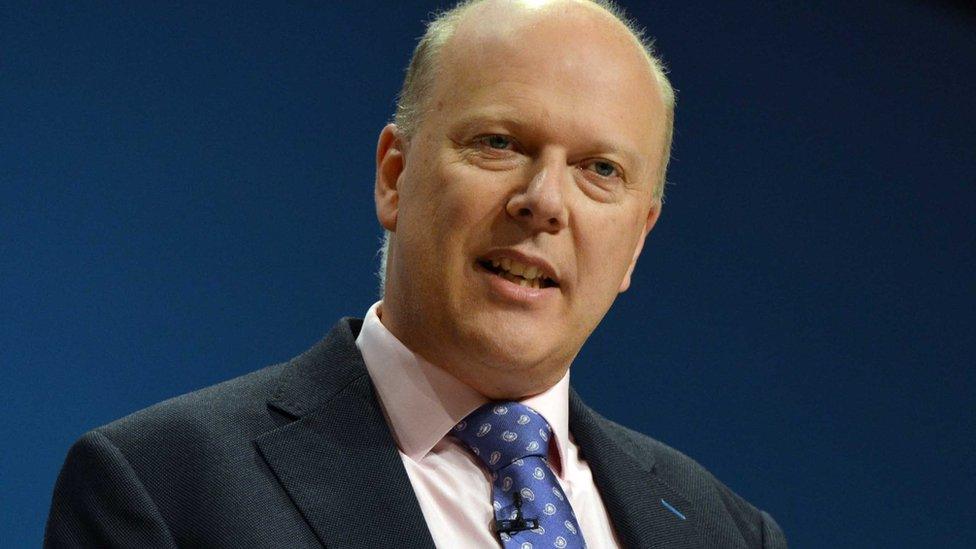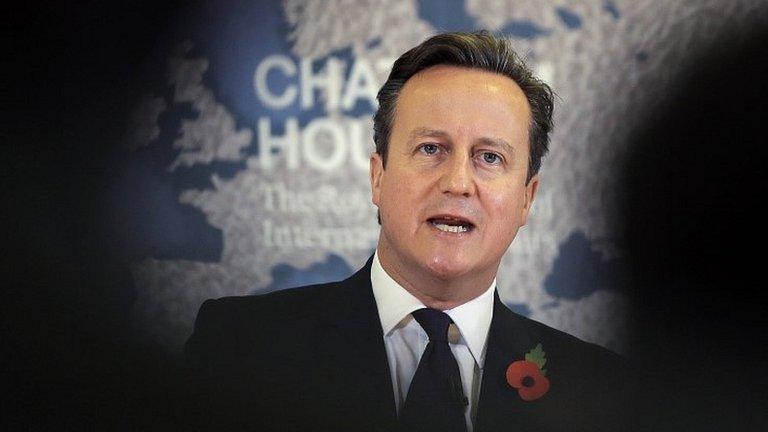Leaving EU would be 'a jump into a void' for the UK
- Published

Conservatives for Reform in Europe is being led by Nick Herbert - a former minister who led the campaign for the UK to stay out of the euro
A vote for Britain to leave the EU would be a "jump into a void", according to the head of a new pro-European Conservative campaign group.
Former minister Nick Herbert has launched Conservatives for Reform in Europe (CRE) to argue the case for the UK to stay under renegotiated terms.
He led the campaign to keep Britain out of the euro 15 years ago.
But UKIP's Nigel Farage said Mr Herbert had never argued for EU exit and was "doing a job bolstering" David Cameron.
The prime minister, who wants the UK to stay within a "reformed" European Union, is pushing to renegotiate Britain's terms of membership of the EU ahead of a UK in/out referendum by the end of 2017.
If agreement with other EU leaders is reached next month, a vote could potentially be held as early as June.

EU referendum: Key questions

BBC political correspondent Carole Walker said Mr Herbert's intervention was a boost for Mr Cameron, especially coming from someone who describes himself as a Eurosceptic.
Writing in The Sunday Telegraph, external, Mr Herbert - who left the government in a reshuffle in 2013 - said: "Leaving without the first idea of what we might get instead would be to jump into a void.
"Whatever our views about the EU, the key long-term challenges facing this country - how to deliver health and social care with an ageing population, how to increase our competitiveness and productivity, how to deal with our debt and live within our means - would not suddenly be solved by leaving."
Mr Herbert said he wanted to "give voice to the thousands of Tory members and supporters" who want Mr Cameron to succeed, arguing his proposed reforms would restore UK "sovereignty" and reduce the "draw" for European migrants coming to Britain by curbing benefits.
But he warned that if the PM was unable to secure sufficient changes to the UK's terms of membership "many of us would be prepared to leave".
'Anti-competitive'
His views were echoed by Education Secretary Nicky Morgan - the first minister to officially declare her allegiance to continued EU membership.
In an article for the Observer, external, she said: "I think all of us agree what we don't want Britain to be: anti-competitive with more laws made overseas and with people travelling here for the benefits on offer rather than to pay their way.
"But we also don't want our children to inherit a Britain cut off from the world, where their prospects are limited and their opportunities end at our shores."
And Lib Dem MP and former deputy prime minister Nick Clegg said there was "safety in numbers" in remaining a member of the EU and he hoped that most people who did not feel strongly about the issue would decide the "risks of leaving outweigh the imperfections of staying".
He told Andrew Marr that mass migration would remain a problem whether the UK was in the EU or not although he suggested that support for Turkey to ultimately become a member of the EU was waning.
Mr Cameron has said ministers will be free to campaign on either side ahead of the referendum, but he has also warned that they must treat each other with "appropriate respect and courtesy".
CRE's campaign is being launched just days after Conservative Eurosceptic and Leader of the Commons Chris Grayling said it would be "disastrous" if Britain was to remain in with its current terms of membership.

What Cameron wants from the EU

The UK is to have a referendum by the end of 2017 on whether to remain a member of the European Union or to leave. The vote is being preceded by a process of negotiations in which the Conservative government wants to secure a new deal for the UK including:
Integration: Allowing Britain to opt out from the EU's founding ambition to forge an "ever closer union" of the peoples of Europe so it will not be drawn into further political integration
Benefits: Restricting access to in-work and out-of-work benefits to EU migrants. Specifically, ministers want to stop those coming to the UK from claiming certain benefits and housing until they have been resident for four years
Sovereignty: Giving greater powers to national parliaments to block EU legislation. The UK supports a "red card" system allowing member states to scrap, as well as veto, unwanted directives
Eurozone v the rest: Securing an explicit recognition that the euro is not the only currency of the European Union, to ensure countries outside the eurozone are not disadvantaged. The UK also wants safeguards that it will not have to contribute to eurozone bailouts

Mr Farage rejected suggestions that the momentum was with those arguing to stay within the EU.
"I have never regarded Mr Herbert as a staunch eurosceptic," he told the Sunday Politics. "When he was a minister and since, he never once advocated Britain leaving the EU. He is doing a job bolstering the prime minister."
He added: "I suspect that most senior politicians inside the Conservative Party will put their careers before their conscience and will back the prime minister's position. But does that matter? That's the real question. And I'm beginning to see this referenda actually as being the people versus the politicians. It might not matter."
And in response to Mr Clegg's comments, Tory MEP Daniel Hannan tweeted: "No-one is against co-operation in Europe. It is only the coercion that we object to."
Other parties are also preparing campaign groups. Labour Leave - led by MP Kate Hoey - is set to launch this week, despite Jeremy Corbyn's promise that his party would campaign to stay in the EU.
- Published14 January 2016

- Published11 November 2015

- Published17 December 2015
